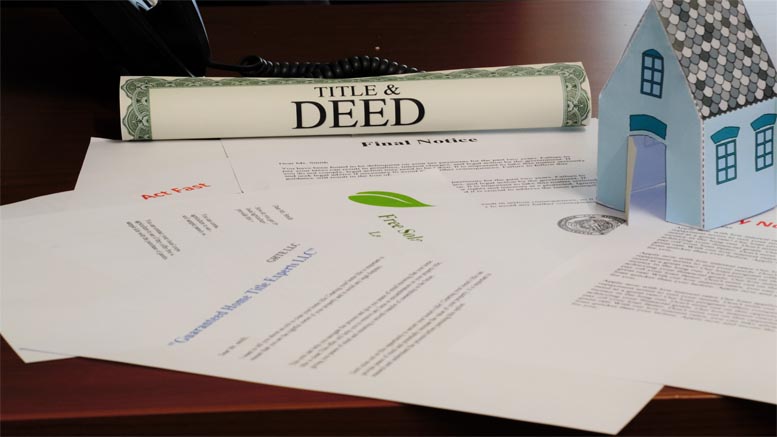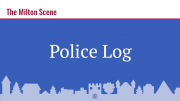Milton homeowners urged to fight deed fraud with free alert service
As home transactions pick up speed as spring continues and in light of recent publicity from the Federal Bureau of Investigation (F.B.I.) Boston Division relating to quit claim deed fraud, or “deed theft,” Norfolk County Register of Deeds, William P. O’Donnell, today, reminds residents about the Registry’s Consumer Notification Program.
The F.B.I. Boston division has reported that from 2019 through 2023, 58,141 victims nationwide reported $1.3 billion in losses relating to real estate fraud. In the Boston Division alone, 2,301 victims reported losing more than $61.5 million during the same period.
Deed theft can take different forms. The most common type of fraud preys on people who are in danger of losing their property through foreclosure. The owners are told that they qualify for a “short sale,” a process where the foreclosing lender settles for less than the amount owed on the mortgage, and that if they sign the deed over to a third party, they can avoid the foreclosure. The owner signs a deed over to the third-party scammer, not realizing they are still responsible for the debt, and the scammer, rather than negotiating the short sale, collects and keeps the rental payments until the lender eventually forecloses.
Another type of deed theft targets elderly people who sign over their property without realizing what they are doing. This is often done by a family member. Deed theft is a serious crime that can result in the loss of one’s home and equity. Homeowners should be aware of these scams and talk to a lawyer before signing any papers that have to do with their property.
A growing concern is forgery, where a scammer fakes a homeowner’s signature on a deed and records it in the registry of deeds. A forged deed is not valid and conveys nothing. If a buyer or a lender rely on a forged deed and don’t do their due diligence on a property’s title, they are out of luck. They, not the legitimate property owner, will ultimately lose any money paid to the thief. Forgery is a felony in all fifty states, punishable by jail time and heavy fines. The court may also require restitution for damages caused by the forgery, such as the costs of clearing the title.
F.B.I. Boston is working with property owners, realtors, county registers, title companies, and insurance companies to thwart the fraud schemes. Read the full article from the FBI Boston Division regarding quit claim deed fraud here: https://www.fbi.gov/contact-
Commenting on the issue, Register O’Donnell stated, “Our mission at the Registry of Deeds is the safety and security of all property records. We recognize that there are unscrupulous individuals who may try to take advantage of the property rights of others. In 2015, we at the Norfolk County Registry of Deeds initiated a Consumer Notification Service, a free service whereby subscribers sign up to be notified when any document is recorded under their name. This initiative came about in response to the Federal Bureau of Investigation (F.B.I.) indicating property and mortgage fraud was one of the fastest growing white-collar crimes in America.”
Companies now offer paid subscription services that will check public records and let a property owner know if a deed has been recorded that changes who owns their property. It is not title insurance. At the Norfolk County Registry of Deeds one can sign up for notification if a document is recorded in one’s name at the Registry.
Information on “Consumer Notification” can be found on the Registry website, www.norfolkdeeds.org under the heading “Services”. The Registry Customer Service Department can assist anyone who would like to set up the notification for their property.
Register O’Donnell concluded, “I want to reiterate that our free notification service, like the paid services, does not protect against fraud but will at least alert the owner if a fraudulent deed has been recorded. This way the homeowner can take steps right away to combat the fraud. Also, Owners should always be aware of what they are signing when it comes to any document that may affect the title to their real estate and should scrutinize any company that promises to alleviate debt if you sign over a deed to them. In Massachusetts, a deed should always be signed in front of a notary public. Massachusetts notaries are obligated to request identification from the party signing the deed.”
If you have any questions about the notification service, please contact our Customer Service Center at 781-461-6101, Monday through Friday between the hours of 8:30 a.m. and 4:30 p.m. Our trained staff is more than willing to answer any questions you may have.
The Norfolk County Registry of Deeds, located at 649 High St., Dedham, is the principal office for real property in Norfolk County. The Registry is a resource for homeowners, title examiners, mortgage lenders, municipalities, and others with a need for secure, accurate, and accessible land record information. All land record research information can be found on the Registry’s website, www.norfolkdeeds.org. Residents in need of assistance can contact the Registry of Deeds Customer Service Center at (781) 461-6101 or email us at registerodonnell@norfolkdeeds.







Be the first to comment on "Milton homeowners urged to fight deed fraud with free alert service"